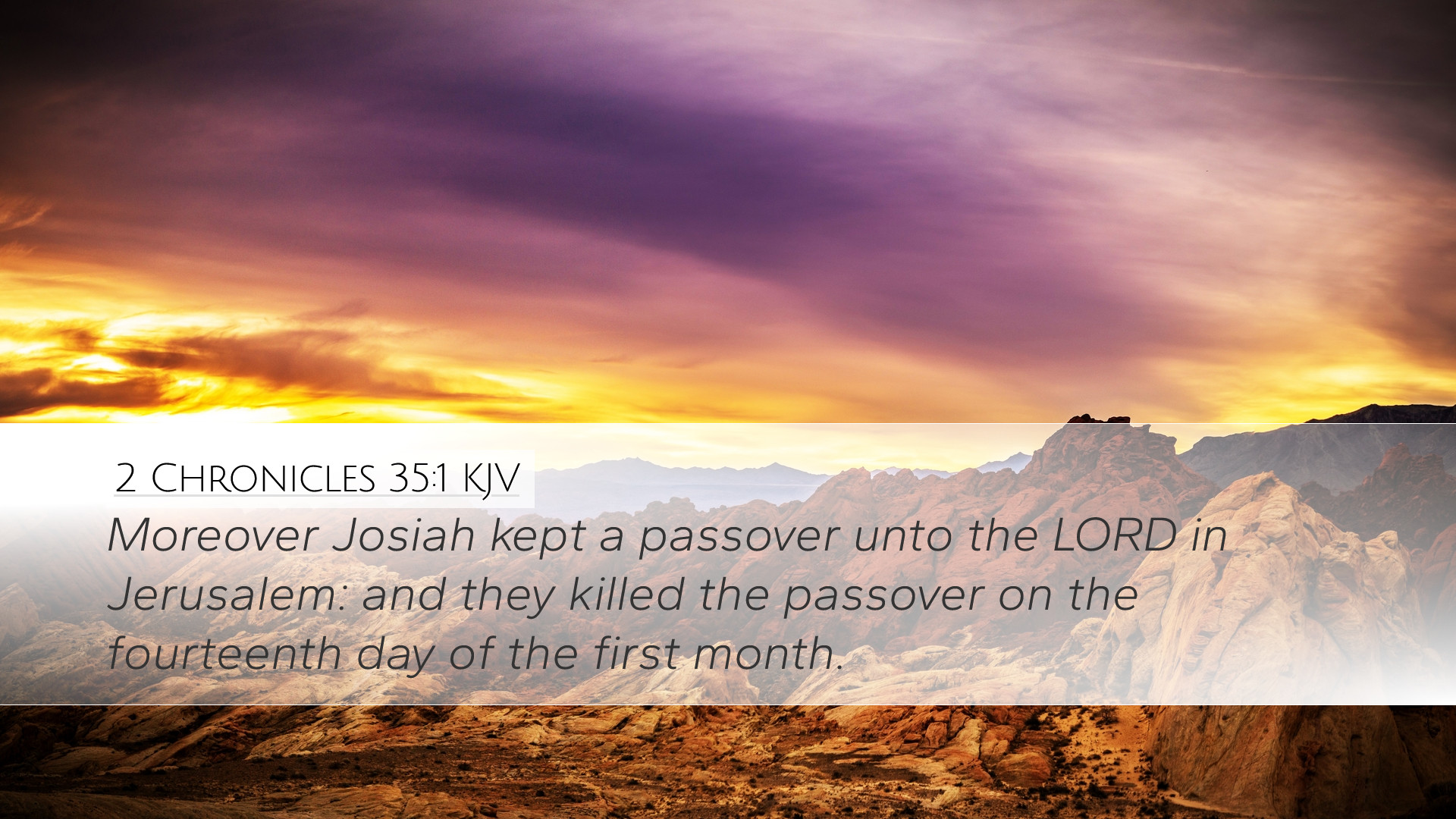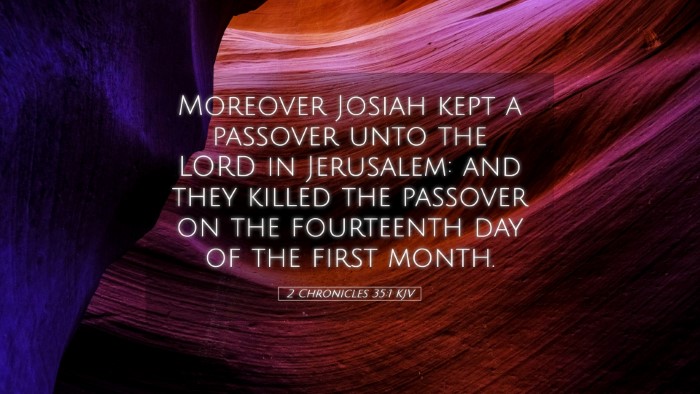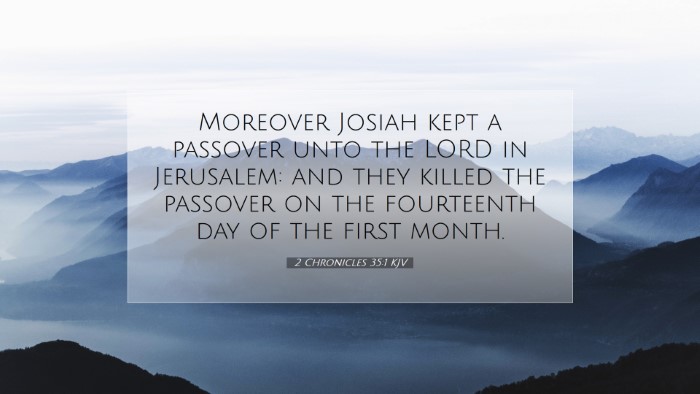Commentary on 2 Chronicles 35:1
The narrative in 2 Chronicles 35:1 presents a significant moment in the history of Israel, particularly concerning the reign of King Josiah. This verse states:
"Moreover Josiah kept a passover unto the LORD in Jerusalem: and they killed the passover lambs on the fourteenth day of the first month."
Contextual Background
To fully appreciate the importance of this verse, it is essential to consider the context of King Josiah’s reign. Josiah ascended to the throne at eight years old and ruled for thirty-one years. His reign is marked by significant religious reforms aimed at restoring the worship of Yahweh and abolishing pagan practices.
Historical Significance of Passover
The celebration of Passover, as described in the Torah (Exodus 12), commemorates the Israelites’ deliverance from slavery in Egypt. In 2 Chronicles 35:1, Josephus remarks on the gravity of this observance, highlighting that it serves as a reminder of God’s faithfulness and protection over His people.
The fact that Josiah orchestrated this Passover in Jerusalem indicates a centralization of worship, reinforcing the city’s spiritual significance. Both Matthew Henry and Albert Barnes emphasize that this Passover was not simply a ritualistic event but embodied a national renewal of faith and commitment to God.
The Role of King Josiah
Josiah’s efforts are characterized by an earnestness in pursuing God. Adam Clarke notes that he took it upon himself to lead the nation in worship, indicating the king’s personal devotion. This verse illustrates how Josiah embodies leadership by actively participating in the religious life of his kingdom.
His role is pivotal, as he fulfills a prophetic tradition of kings who would seek to align the nation’s actions with divine commandments. Matthew Henry articulates that this act serves as an exemplary model for modern leaders in how they should guide their communities in spiritual matters.
The Observance of the Passover
The Passover’s observance on "the fourteenth day of the first month" aligns with the prescriptions laid out in Exodus 12. This precise adherence to the timing underscores the seriousness with which Josiah approaches God’s commands.
-
Significance of Timing: The specific date is not arbitrary; it speaks to the importance of the liturgical calendar in Israelite worship, allowing the people to reflect collectively on God’s past deliverance.
-
Community Participation: Josiah’s Passover encouraged national participation. It was a call for all Israelites to unite in their worship and remembrance. This reflects how vital community is in expressing faith collectively.
Theological Implications
Theologically, this act of worship carries substantial implications. It reaffirms the concept of covenant renewal—a theme prevalent throughout the Old Testament. Albert Barnes asserts that the Passover serves as both a memorial and a means through which the community re-experiences God's salvific actions.
Furthermore, the killing of the lamb holds profound prophetic significance, prefiguring the ultimate sacrifice of Christ as the Lamb of God. This typological lens invites readers to view the Old Testament through the eyes of Christ’s coming.
Reflections for Today
For contemporary pastors and scholars, 2 Chronicles 35:1 serves as a poignant reminder of the need for both personal and communal reaffirmation of faith.
-
Leadership in Worship: The example of Josiah challenges church leaders to prioritize worship that is biblically grounded and encourages collective participation among congregants.
-
Covenant Renewal: This passage invites believers to consider their own covenant relationship with God and the importance of regularly remembering His faithfulness.
Conclusion
2 Chronicles 35:1 is an inviting text for exploration, meditation, and application. Through the actions of Josiah, we are called to reflect on the significance of our worship practices, the importance of faithful leadership, and the lasting relevance of God’s redemptive history as we strive to honor Him in both our individual and communal lives.


